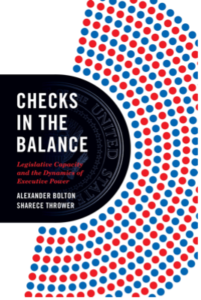Research
Dive Deep. Our research addresses the pressing political questions of our time, with an emphasis on cutting-edge methodology. From political identity formation, to democratic backsliding, to the outbreak of war, our scholars contribute to the global conversation about the future of our political world.
Research Collaborations
The Department of Political Science houses, and works closely with, various interdisciplinary research centers and institutes across campus:
- CEL: The Center for Effective Lawmaking was created in 2017 to advance the generation, communication, and use of new knowledge about the effectiveness of individual lawmakers and U.S. legislative institutions.
- CSDI: The Center for the Study of Democratic Institutions was established in 2009 to support and disseminate systematic theoretical and empirical research on questions central to the health and survival of democratic institutions in the United States and abroad.
- CGD: The Center for Global Democracy is a center for excellence in international survey research. The lab produces the award-winning AmericasBarometer and brings together a diverse network of scholars and students to advance research on survey methods, public opinion, and democracy.
- RIPS: The Research on Individuals, Politics & Society Lab, the experimental research program in the Department of Political Science, aims to advance empirical research in political behavior while also enriching the learning environment for faculty and students.
- ROCCA Lab: The Research on Conflict and Collective Action Lab serves as a collaborative space for undergraduates, graduate students, and faculty members to produce rigorous social science research on political violence and collective action problems. Each semester, undergraduates work with faculty mentors and their peers on projects ranging from the study of slowing nuclear proliferation to research on small arms trade networks.
Research Stories
Sharece Thrower
 Associate Professor of Political Science
Associate Professor of Political Science
Sharece Thrower, who serves on the executive committee of the Center for the Study of Democratic Institutions, published a new book with co-author Alexander Bolton: Checks in the Balance: Legislative Capacity and the Dynamics of Executive Power. The specter of unbridled executive power looms large in the American political imagination. Are checks and balances enough to constrain ambitious executives? Checks in the Balance presents a new theory of separation of powers that brings legislative capacity to the fore, explaining why Congress and state legislatures must possess both the opportunities and the means to constrain presidents and governors—and why, without these tools, executive power will prevail. Checks in the Balance affirms the centrality of legislatures in tempering executive power—and sheds vital new light on how and why they fail.
Noam Lupu and Elizabeth J. Zechmeister

 Noam Lupu, Professor of Political Science and Director, Center for Global Democracy
Noam Lupu, Professor of Political Science and Director, Center for Global Democracy
Elizabeth J. Zechmeister, Cornelius Vanderbilt Professor of Political Science and Director, Center for Global Democracy
CDG published a study that sheds new light on how political corruption shapes democratic attitudes. The paper, published in the Journal of Experimental Political Science, was coauthors by Noam Lupu, Professor of Political Science and CGD Director, and Elizabeth J. Zechmeister, Cornelius Vanderbilt Professor of Political Science and CGD Senior Advisor.



